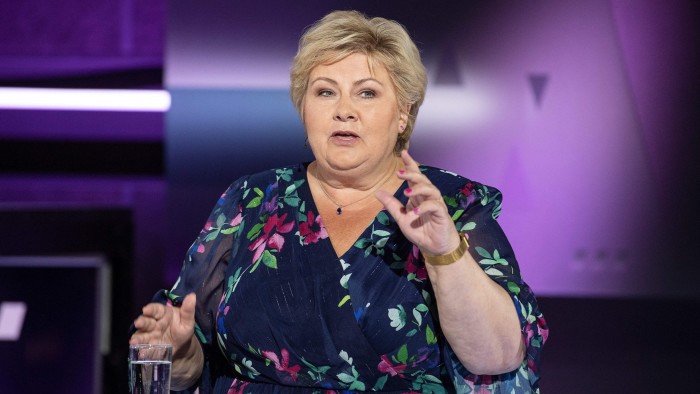Proposal to Lift Ban on Norwegian Sovereign Wealth Fund’s Defense Investments
Context of the Ban
The Norwegian sovereign wealth fund, valued at approximately $1.8 trillion, is currently prohibited from investing in most defense companies, a restriction that has been in place since the early 2000s. This ban was instituted by the Norwegian parliament, which established ethical guidelines that exclude investments in firms that manufacture components for nuclear or cluster weapons.
Political Landscape Shifts
As Norway approaches parliamentary elections later this year, there has been a noteworthy shift in political discourse. The centrist Conservative and Progress parties are advocating for the repeal of these investment restrictions, citing the evolving security environment in Europe.
Erna Solberg, former Prime Minister and current leader of the Conservative Party, voiced her concerns regarding the existing regulations, stating, “It’s completely crazy to have restrictions today that the oil fund cannot invest in the defense industry.”
Calls for Change in Investment Policies
Progress Party MP Hans Andreas Limi has taken initiative by introducing a private members’ bill aimed at revoking the nuclear weapons ban. This change would enable the fund to invest in major defense manufacturers, including Boeing, Airbus, and Lockheed Martin, which it has been barred from since approximately 2005-06.
Limi criticized the current policy as hypocritical, noting Norway’s reliance on NATO and the United States for security, particularly under the NATO nuclear umbrella. “We buy equipment from the same companies but we can’t invest in them,” he remarked, reinforcing the argument for reevaluation of the restrictions.
Global Trends Influencing Investment Considerations
The ongoing geopolitical tensions, especially following Russia’s invasion of Ukraine, have compelled investors to reconsider their hesitance towards defense sector equities. There is a growing consensus that increased military expenditures are necessary for national security, particularly in Europe.
The Norwegian fund, which typically holds an average of 1.5% of every public company worldwide, significantly impacts market dynamics. Analysts believe that any shift in Norway’s investment stance could influence other global investors to reevaluate their own policies regarding defense company investments.
Ethics and Future Perspectives
Norway’s parliament has previously enacted product exclusions that encompass not only nuclear and cluster weapons but also tobacco and coal industries. The debate surrounding the fund’s exclusion from the defense sector opens up discussions regarding what is deemed ethically acceptable in the current global climate.
Ida Wolden Bache, governor of Norway’s central bank, expressed the necessity for a review of ethical standards: “We must be open to the possibility that what is considered to be ethically acceptable may change.” A senior Norwegian official echoed similar sentiments, questioning the logic of relying on U.S. military technologies while being unable to invest in the associated manufacturers.
Upcoming Elections and Potential Impacts
The Conservative and Progress parties are anticipated to contend strongly in the upcoming elections, with the latest political climate indicating a competitive race against the backdrop of Stoltenberg’s return to local politics, which has generated renewed interest and support.
Limi is optimistic about the financial returns from defense investments, asserting that they would be “very profitable” for the fund, should the policies change in response to the current global security landscape.


